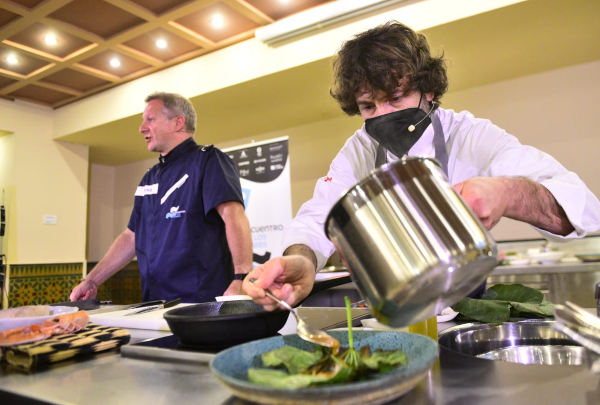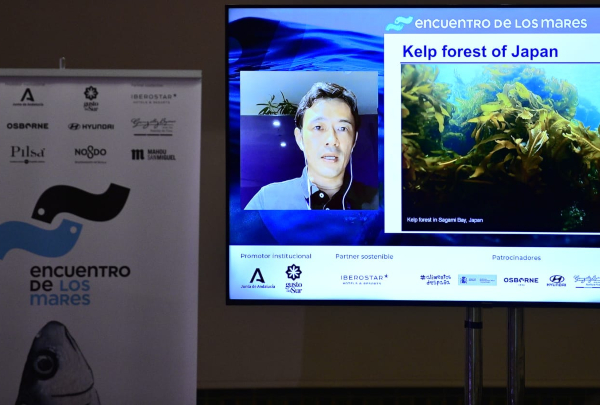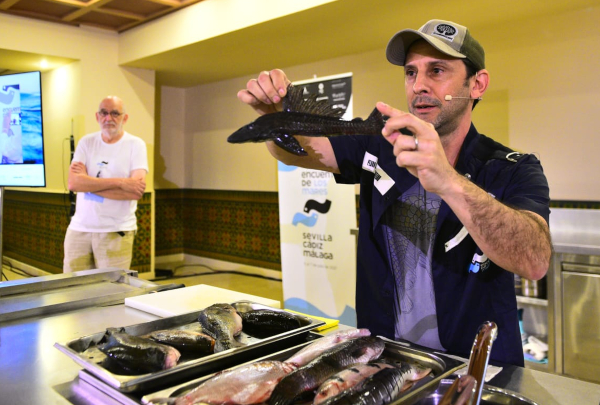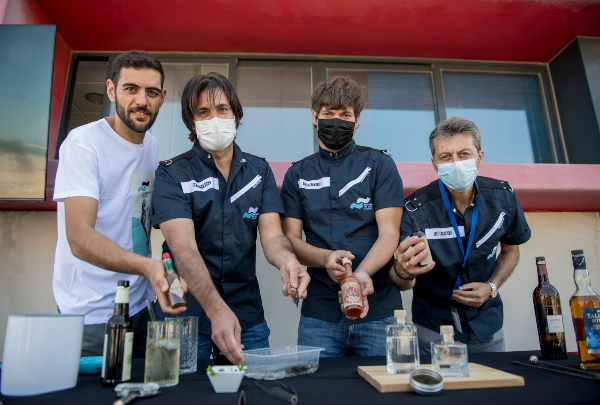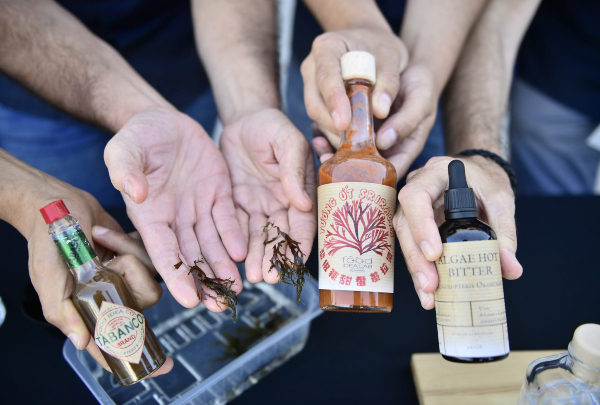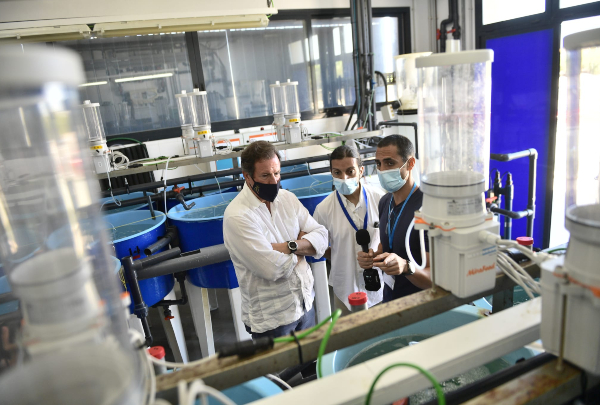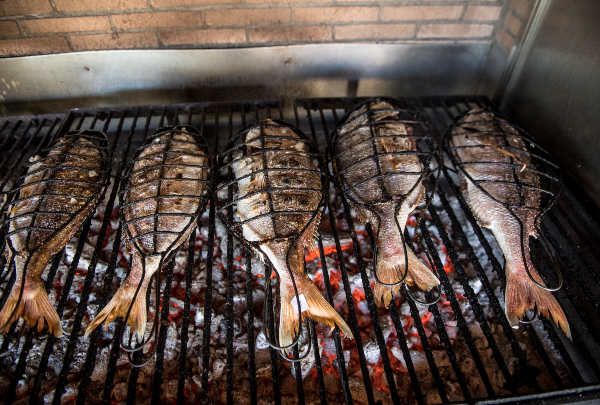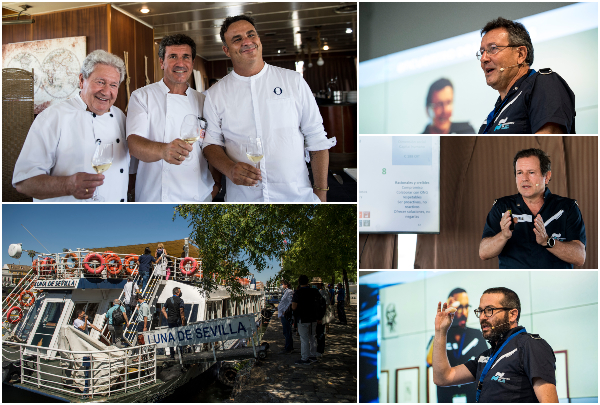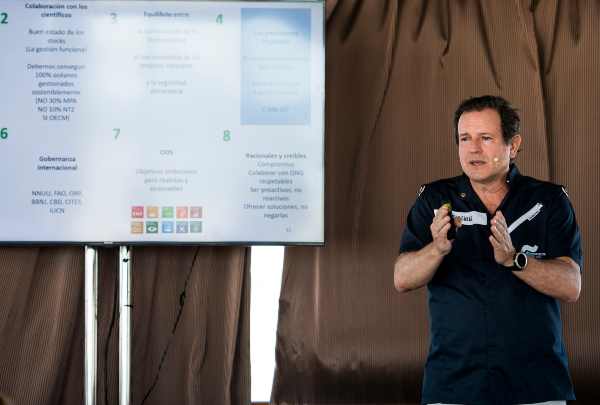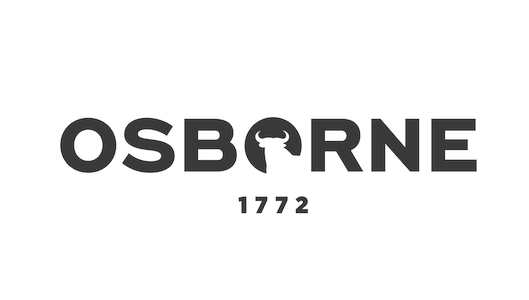News
Carlos Duarte: “Eating seaweed isn’t an option – it’s a must for a sustainable global society”

Carlos Duarte, Professor of Marine Sciences at Saudi Arabia’s King Abdullah University and scientific director of Meeting of the Seas, outlined the major benefits of the cultivation of algae, in terms of economics, the environment and social development.
Duarte began his talk by taking us back 160 million years to understand why the consumption of seaweed has been so important in the history of human beings. The first remains of modern human beings were found in the Blombos cave opposite the sea on the coast of South Africa. Just a coincidence? No. The impressive forest of algae under the water there provided our ancestors with an Omega 3-rich foodstuff that assisted their cognitive capacities. Over time, however, in the West – though not in the Orient – the food link with maritime forests was lost. “It’s time to retrieve it”, says the professor.
The reasons are many and varied, Carlos Duarte has analysed them, and claims that there are so many benefits in the cultivation of algae that “it’s almost, almost, too good to be true”. With a global count nowadays of 7.5 million km2 of maritime forests (the equivalent of Amazonia), these underwater green reserves provide us with “the most intense oxygen production and carbon sequestration levels on the planet”. Maritime forests also constitute a refuge against the acidification of oceans, a boost to diversity and water quality, because they remove nitrogen and phosphorous. In fact, in Duarte’s own words, “an oasis against climate change”.
The future, says the scientist, entails increasing this surface area by creating algae farms. At the present time, “there are 2,000 km2 of farms on a global scale – 95% of them are in Asia – but we’ve calculated that the best we can do to maintain sustainable cultivation is 3-4 million km2”. “There’s still a long way to go”, smiles Duarte. These figures, if they were achieved around 2150, would entail “the creation of 50 million tonnes of marine foodstuffs, 1,250 million megawatt-hours in biofuels, and they could sequester up to 300 million tonnes of CO2 in the sediments under the farms”. Also, “the enormous genetic diversity between the different types of algae paves the way towards a huge diversity of options for applications in sectors such as the food industry, biofuels, bioplastics, biomedical applications etc.”
Boosting cultivation in the sea would also give the land a break because “this would present freshwater extraction, no more agricultural land would be used up, and there would be no need for fertilisers, pesticides etc.”, says Carlos Duarte. Algae would even play a role in reducing methane emissions because it has been proved that “0.1% of red macroalgae in livestock fodder reduces methane emissions by 80% with no impact on animal welfare or the quality of their produce”.
The Professor of King Abdullah University avails himself of these data to claim that “eating seaweed isn’t an option – it’s a must for a sustainable global society”, and so the task of the West is to boost the consumption of algae (currently 1,000 times less than the consumption of 10 grams per person and per day in Japan). He ended his talk on the role of algae cultivations in a sustainable future with some advice for all of us to make our own contribution: “implement seaweed on our tables”.
.jpg)
